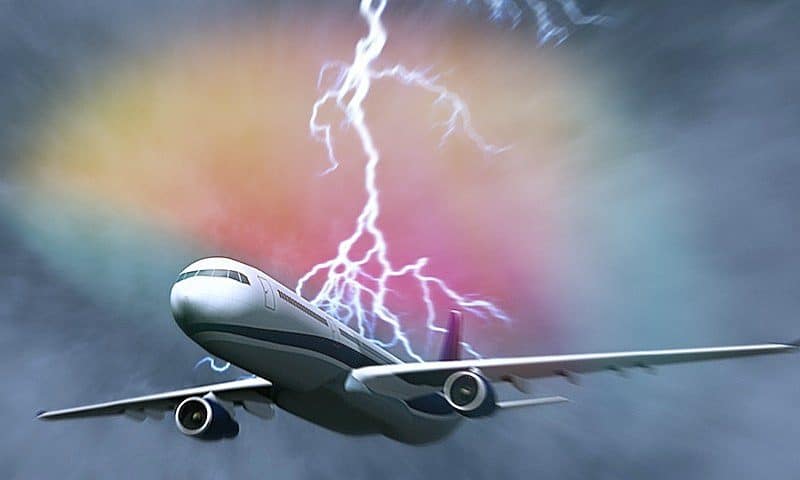Flying can be a scary experience for many people (including business people), but it can be downright terrifying for those who have aerophobia or a fear of flying.
While there is no one-size-fits-all solution for overcoming this fear, there are a few things you can do to make your next flight less stressful.
In this post, we’ll go over eleven simple tips that should make your next flight a little easier.
However, first, let us define aerophobia.
What Exactly Is Aerophobia (Fear of Flying)?
The fear of flying, or aerophobia, is a relatively common phobia that can cause significant anxiety and distress.
Aerophobic individuals may experience rapid heartbeat, shortness of breath, sweating, and dizziness when contemplating flying or while in an aircraft. Aerophobia can cause panic attacks in severe cases.
A fear of heights, a fear of enclosed spaces, or a previous bad experience while flying can all contribute to the development of aerophobia.
Some people may be predisposed to anxiety disorders in general. Aerophobia is typically treated with exposure therapy, which gradually helps the person become more comfortable with flying.
In some cases, medication may be used to help reduce anxiety levels.
Should I Be Afraid of Flying?
Being afraid of flying isn’t exactly logical statistically. According to PBS’s Nova, your annual risk of dying in a plane crash is 1 in 11 million, while your annual risk of dying in a car crash is 1 in 5000. When it comes to phobias, however, what you know intellectually and what you feel emotionally are two completely different things. So it’s not a matter of whether you should or shouldn’t. If you’re afraid of flying, you’re afraid of flying. There’s no need to be embarrassed if you’re afraid of flying. Instead, take heart in the fact that there are numerous things you can do to alleviate this sensation.
How widespread is fear of flying?
An estimated 40% of Americans have some fear of flying, with as many as 6% having a fear of flying phobia.
Tips for Overcoming Airplane Fear
Most people who are afraid of flying do not consider the fear of being in the aircraft itself. People are more interested in the idea of being six miles above the ground. Even so, it’s not uncommon for people to be afraid of planes.
If your fear of flying stems from being in the aircraft itself, here are a few things to keep in mind and some tips for dealing with it.
#1. Pick a Seat
This gives you a greater sense of power and control. Some people may feel more comfortable looking out the window to see the plane flying above the clouds. But what about the rest? Not at all. If you are afraid of crashing, it may help to know that the middle seats in the back of the plane are statistically the safest. Many airlines will automatically assign you a seat, but if they offer seat selection, even for a fee, you should take advantage of it.
#2. Learn Everything You Can About the Aircraft You’ll Be Flying
Many airlines make it simple for passengers to determine the make and model of their aircraft. Some airline-specific apps that make it simple to check in for your flight also make it simple to find information about your flight logistics and the aircraft.
#3. Discover the Airplane’s Safety Features
Knowledge, as they say, is power. The more you understand all of the safety features and fail-safes built into the plane design, the less likely you are to be nervous about flying. Commercial airplanes, for example, have multiple engines and built-in backup plans.
#4. Getting Rid of Claustrophobia or Agoraphobia
Many of us overlook the fear that can arise from being crammed into a small space with so many people shoulder to shoulder. For someone who is claustrophobic or agoraphobic (fears crowded places), this can be extremely difficult. If you suspect that these fears are exacerbating your fear of flying, you can work on reducing them before your flight. This may entail seeking assistance from a mental health professional who specializes in these specific phobias.
Risks of Not Overcoming Your Fear of Flying
While flying phobia may appear minor, it can have serious consequences if left untreated.
#1. Missing Important Life Events Like Weddings, Funerals, and Family Vacations:
Many people are afraid of flying, and while it may appear to be a minor inconvenience, it can have a significant impact on your life.
If you let your fear of flying keep you from traveling, you may miss important life events like weddings or funerals.
You could miss out on incredible experiences such as visiting new places or seeing iconic landmarks. Furthermore, your fear of flying can result in significant financial costs.
If you have to cancel or change your travel plans frequently due to your fear, you will almost certainly incur high fees from airlines or hotels.
This travel anxiety can have a negative impact not only on your personal life but also on your financial situation.
As you can see, there are numerous risks associated with not conquering your fear of flying. To live a complete and enriching life, facing your fears and taking to the skies is essential.
#2. Aversion to Flying Can Result in Agoraphobia or the Fear of Leaving One’s Home:
One danger of not conquering your fear of flying is that it can lead to agoraphobia. (Pubmed) When people are afraid of flying, they may avoid other activities and places that require flying, such as visiting family, attending work conferences, or going on vacation.
It can result in social isolation and a reduction in quality of life. People who are afraid of flying may become housebound and unable to leave their homes in severe cases.
While there are treatments for agoraphobia, it is often a debilitating condition that has a significant impact on a person’s life. As a result, addressing the fear of flying is critical before it leads to additional complications.
#3. Increased Anxiety and Stress Levels
Increased anxiety and stress levels are one of the risks of not conquering your fear of flying.
Anxiety can be caused by a variety of factors, including a fear of enclosed spaces, a fear of heights, or a general sense of unease about flying.
If unchecked, these feelings can spiral into anxiety, making it difficult to function in daily life and affecting your mental health. In severe cases, it can even result in a panic attack.
If you are afraid of flying, it is critical that you seek professional assistance. It is possible to overcome your fear of flying and enjoy flying as others have.
How Can I Overcome My Fear of Flying?
Here are some pointers to help you overcome your fear of flying:
#1. Learn Everything You Can About Flying
One of the most effective ways to overcome your fear of flying is to learn about the process and what happens during takeoff, flight, and landing.
Planes are built to be safe and efficient, and pilots are highly skilled professionals. To summarize, commercial air travel is now safer than ever.
Understanding how planes work can assist in dispelling myths and misconceptions that are fueling your fear.
It can also be beneficial to watch instructional videos or read articles about flying. You’ll be less anxious about the unknown if you know what to expect.
It’s important to remember that everyone experiences fear at some point in their lives. Accepting that feeling scared is normal will increase your likelihood of confronting your fears. Flying does not have to be perfect or painless in order to be safe.
#2. Speak With Someone Who Has Flown Before
It is natural to be nervous about flying, especially if you have never done so before. One of the most effective ways to overcome your fear is to speak with someone who has flown before.
They can teach you how an airplane works and what to expect on a flight.
You will be less nervous about flying a plane once you understand what goes into it.
Also, before boarding the plane, relax and take some deep breaths. Remember that millions of people fly without incident every day, so there is no need to be concerned.
You might be able to overcome your fear of flying with a little bit of knowledge and some deep breathing.
#3. Choose the Ideal Seat for You
If you’re a nervous flyer, the first step toward conquering your fear of flying is selecting the ideal seat. If you get nervous in small spaces, a window seat might be the best option for you.
You’ll have the added security of being able to see outside and not feel trapped this way.
If you are prone to motion sickness, avoid aisle seats where you will be jostled.
If you’re concerned about turbulence, ask the flight attendant if you can sit near the wing, where you’ll be less likely to feel bumps.
If you can’t find the required seats, you can spend a little more on a business class ticket.
#4. Divert Your Attention During the Flight
Distracting yourself during a flight is one of the simplest ways to forget you’re thousands of feet above the ground.
Reading, listening to music, or playing games in flight can help take your mind off the fact that you’re on a plane.
Note: Avoid watching movies about plane crashes because they may be one of your triggers and cause extreme anxiety.
It’s also worth noting that flying is one of the safest modes of transportation available. Keep in mind that the chances of being in a plane crash are about 1 in 11 million (NOVA).
If you have a fear of flying, there are several medication and therapy options that can help. Discuss your options with your doctor or a mental health professional.
#5. Don’t Be Afraid to Seek Assistance
Flying can be a frightening experience, particularly for those who are afraid of heights or have a fear of enclosed spaces.
There are, however, some things you can do to help alleviate your anxiety and make the experience more bearable. To begin, recognize that you are not alone in your fear.
Many people get nervous when they fly, and the flight crew is trained to handle these situations. If you become extremely anxious during the flight, don’t be afraid to seek assistance from the flight attendants. They will be able to reassure and support you.
It can also help you to take some deep breaths and focus on relaxing your muscles.
Meanwhile, it is important to remember that flying is one of the safest modes of transportation, so try to remain calm and remind yourself that you have nothing to fear. You can overcome your fear of flying and enjoy the experience with some preparation.
#6. Experiment With Relaxation Techniques
Flying anxiety and stress can be significantly reduced by practicing relaxation techniques. Deep breathing exercises, visualization, and even meditation can all be part of it.
It is critical to find a technique that works for you and to practice it on a regular basis. Another piece of advice is to avoid caffeine and alcohol before flying, as these can exacerbate anxiety symptoms.
#7. Seek Professional Assistance
Overcoming a fear of flying may appear to be a daunting task, but there is professional assistance available to make the process easier.
One option is to see a therapist who specializes in anxiety disorders.
Cognitive-behavioral therapy (CBT) is a type of therapy that is effective in treating a variety of anxiety disorders. A CBT therapist can assist you in identifying and challenging the negative thoughts and behavioral patterns that are contributing to your fear of flying.
It is possible to overcome a fear of flying and enjoy flying trips with professional assistance. Your doctor can prescribe anti-anxiety medication to help reduce anxiety symptoms and make it easier to manage your fear. Medication can also be used to treat anxiety disorders.
#8. Take a Flight With a Friend or Family Member
Flying with a friend or family member is a simple and effective way to reduce your anxiety. If it’s your first flight, having them accompany you can help alleviate a lot of flight anxiety.
It can make you feel more at ease and relaxed because you’ll have someone to talk to during the flight. Plus, having them nearby will make it feel less foreign.
#9. Exposure Therapy Using Virtual Reality
While there are a variety of methods for overcoming this fear, Virtual Reality Exposure Therapy (VRET) is an effective treatment for aerophobia or the fear of flying.
VRET exposes patients to a virtual environment that simulates flying. It allows them to confront their fears in a safe environment while gradually increasing their exposure to real-life flying situations.
Several studies have demonstrated that VRET is an effective treatment for aerophobia (Australian and New Zealand Psychiatry study), with patients reporting significant reductions in fear and anxiety after completing the therapy.
VRET may be an effective treatment option for anyone who is afraid of flying.
#10. Give It Some Time
It is estimated that 2.5 to 6.5% of the population is afraid of flying. It means that whenever a plane takes off, there are dozens of people on board who are nervous, if not panicked.
If your fear is minor, it may fade over time. If your fear is more severe, you may need to take some steps to confront it.
Allow yourself some time to get used to the idea of flying. You may feel more at ease about flying once you understand how safe it is. Take a short flight if you have the chance to get used to the sensations of being in the air.
Remember, it’s perfectly normal to be nervous about flying—you’re not alone!
#11. Take a Real Flight
There is no better way to overcome your fear of flying than actually to fly.
Begin with a short flight—perhaps an hour or two. If everything goes well, think about taking a long flight. And don’t forget to congratulate yourself after each flight!
Flying experiences can assist nervous flyers in acclimating to air travel.
What are some of the reasons why people are afraid of flying?
People may be afraid of flying for a variety of reasons, including a fear of heights, a fear of being in a confined space, or a fear of crashing. Some people may be concerned about being away from home or losing control of the situation.
What are some of the symptoms of flying phobia?
Flight phobia symptoms differ from person to person. They may still include feeling anxious or panicked about flying, sweating, increased heart rate, difficulty breathing, and avoiding flying entirely.
What are some treatments for flying phobia?
The severity of the fear of flying will determine the treatment. Some people may be able to overcome their fear through virtual reality exposure therapy or by taking anxiety medication. Others may require professional assistance from a therapist who specializes in treating phobias.
What exactly is VR exposure therapy?
Virtual reality exposure therapy (VRET) is a treatment that allows people who are afraid of flying to confront their fears in a safe environment. VRET exposes patients to a virtual environment that simulates flying. It allows them to increase their exposure to real-life flying situations gradually.
How long does it take to overcome a fear of flying?
The length of time it takes to treat a fear of flying varies according to the severity of the anxiety and the treatment used. Some people may experience symptom relief after only a few sessions of exposure therapy, while others may require treatment for several weeks or months.
Conclusion
Although overcoming your fear of flying may appear difficult, following these 11 simple steps can make the process much easier.
Remember to be patient and take things slowly – before you know it, you’ll be enjoying your next flight!
Related Articles
- HOW TO OVERCOME FEAR: Simple & Effective Strategies
- How to Be a Flight Attendant: Best Easy Guide 2023
- When Is the Best Time to Book a Flight? What You Should Know






